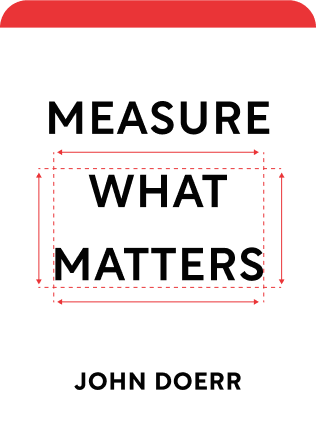

This article is an excerpt from the Shortform summary of "Measure What Matters" by John Doerr. Shortform has the world's best summaries of books you should be reading.
Like this article? Sign up for a free trial here .
What are some OKR examples for operations? Are there examples that can demonstrate how using OKRs improve the company’s operational methods?
OKRs can be used in every area of business. One of the best OKR examples for operations in Measure What Matters is Zume Pizza, which was able tot use OKRs to reframe its goals and how it operated the business. Additionally, Zume Pizza found many other benefits to using OKRs.
Keep reading to find out more about one of the best OKR examples for operations, Zume Pizza.
OKR Example for Operations: Zume Pizza
The goal of Zume Pizza is to use technology to quickly deliver cheap, healthy, delicious pizzas to consumers in the Bay Area. (Shortform note: In January 2020, Zume Pizza rebranded itself as Zume, Inc., a company that creates the technological infrastructures needed to make food production and delivery more efficient and less wasteful.) Zume Pizza is one company that recognizes the subtler benefits of using the OKR system as well as being one of the OKR examples for operations. In fact, using OKRs to improve operations directly led to receiving these side benefits.
Side Benefit #1: OKRs Force Executives to Set Realistic Goals
When Zume co-founder Alex Garden worked as a general manager for Microsoft’s Xbox Live, he found that the objectives set by executives were often unrealistic or impractical because these leaders weren’t in touch with the day-to-day operations of the company.
Conversely, executives who use OKRs have to figure out what key results will lead to their objectives. They need to know the how, as well as the what. OKRs and CFRs provide leaders with a reality check. This focus on how and why makes Zume Pizza one fo the more interesting OKR examples for operations.
Side Benefit #2: OKRs Teach Future Managers How to Be Leaders
Garden says that when you’re an employee, you’re often evaluated based on the volume of your contributions to the company. If you produce a lot, you’re promoted, and eventually, you find yourself in a manager position. Now, instead of being evaluated by the quantity of your work, you’re evaluated by the quality of your decisions. You’re paid to think, rather than do.
However, no one tells you that as a manager, working smarter matters more than working harder. Furthermore, no one tells you how to work smarter. Consequently, when problems arise, you just keep working harder and harder, because that’s what you’ve always done and that’s what’s worked in the past.
As one the the OKR examples for operations, Zume Pizza experiences other benefits. One major benefit of the OKR system is that it forces everyone, at every level of the company, to work smarter:
1) It forces everyone to align their goals with the company’s goals, and to understand exactly how their specific goals and activities contribute to the company’s success. In other words, it forces every employee to think like a manager.
2) It forces people to be specific about their priorities—you can only choose three to five goals, and you need to know exactly how you’ll achieve them and how you’ll measure their success. Again, employees learn to think like managers. Then, as a manager, she already knows how to make quality decisions and lead others to do the same.
3) It forces all employees to take ownership of their ideas and goals and to have a voice. In some organizations, only the loudest members are heard. In OKR organizations, everyone’s voice is heard because everyone’s goals are transparent. Everyone has to take on the essential leadership skills of setting goals, making them public, soliciting feedback, and defending their priorities.
Startups that don’t groom their members to become executives miss a valuable opportunity. They either end up promoting employees who don’t know how to lead, or they gradually replace the original team with outside hires. Neither is good for a company’s morale or success.
Side Benefit #3: OKRs Create a “Culture of Consideration”
A “culture of consideration” is one in which each member of the team understands how his or her work affects others in the company. Members also understand how their work depends on the work of others.
For example, at a pizza delivery service like Zume, the delivery fleet manager, Mike, might have a key result of expanding the radius of the company’s pizza delivery by a certain date. But this goal depends, in part, on whether the manufacturing team can get all the vehicles ready for the expansion.
Let’s say the manufacturing team is running behind schedule. At another company, this might cause Mike to feel resentful and anxious—his ability to achieve his goal is at risk, and he feels out of control of the situation. He might confront the leader of manufacturing, Joe, pressuring him to hurry up. This interaction ends in hostility between Mike and Joe and, possibly, the failures of their respective goals.
However, in any company that implements OKRs, Mike can simply say to Joe, “This KR is at risk.” There’s no blame in this objective statement, and Joe likely already knows the KR is at risk: The KRs of all departments are transparent, and Joe has already agreed to this KR. Additionally, because Mike and Joe know their work is interdependent, they’ll advocate for one another—if Joe needs more resources from upper management to get his piece of the job done, it’s in Mike’s best interest to help him get them.
Zume Pizza is one of the more interesting OKR examples for operations because it offers a look at direct company improvements, plus added benefits.

———End of Preview———
Like what you just read? Read the rest of the world's best summary of John Doerr's "Measure What Matters" at Shortform .
Here's what you'll find in our full Measure What Matters summary :
- How Google uses OKRs to rally 100,000 employees in the right direction
- How to avoid setting useless OKRs, and how to set great ones
- Key subtle behaviors your team must master to make OKRs work






